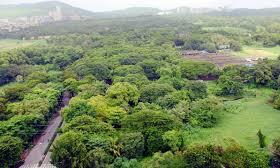
Supreme Court seeks Maharashtra’s clarification on additional tree felling in Aarey Forest
text_fieldsThe Supreme Court has directed the Maharashtra government to confirm whether there is any proposal to cut more trees in Mumbai's Aarey forest.
A bench comprising Justices Abhay S. Oka and Augustine George Masih instructed the parties to finalize pleadings by the second week of February 2025, allowing the state to provide a clear statement on the matter.
Expressing concern over environmental impact, the bench remarked, "Thousands of trees must have already been cut." The court has scheduled the next hearing for January 10, 2025.
In 2023, the Supreme Court permitted forest-dwelling tribes to approach the Bombay High Court with grievances about tree cutting in Aarey for the metro rail project. The issue has been contentious, with environmental activists and local residents opposing deforestation.
On April 17, 2023, the apex court reprimanded the Mumbai Metro Rail Corporation Limited (MMRCL) for exceeding its earlier approval to fell only 84 trees. The court imposed a Rs 10 lakh penalty on MMRCL, criticizing its attempt to bypass the court's directive. However, it later allowed the removal of 177 trees, citing the importance of not halting the public metro project.
In 2019, the Supreme Court took suo motu cognizance of a law student’s plea seeking a stay on tree felling in Aarey Colony. Subsequently, on November 29, 2022, the court permitted the Mumbai Metro Rail Corporation Limited (MMRCL) to approach the relevant authority to fell 84 trees while issuing a warning against any violations. In 2023, strict penalties were imposed on MMRCL for attempting to fell trees beyond the court’s sanctioned limit.
The Aarey forest, often referred to as the "green lungs" of Mumbai, has been at the center of heated debates between development advocates and environmentalists. Activists and residents have voiced strong opposition to further deforestation, citing its adverse impact on the environment and biodiversity.
The Supreme Court has consistently emphasized the need to balance developmental needs with environmental preservation. It has warned authorities of strict consequences for non-compliance with its directives.























